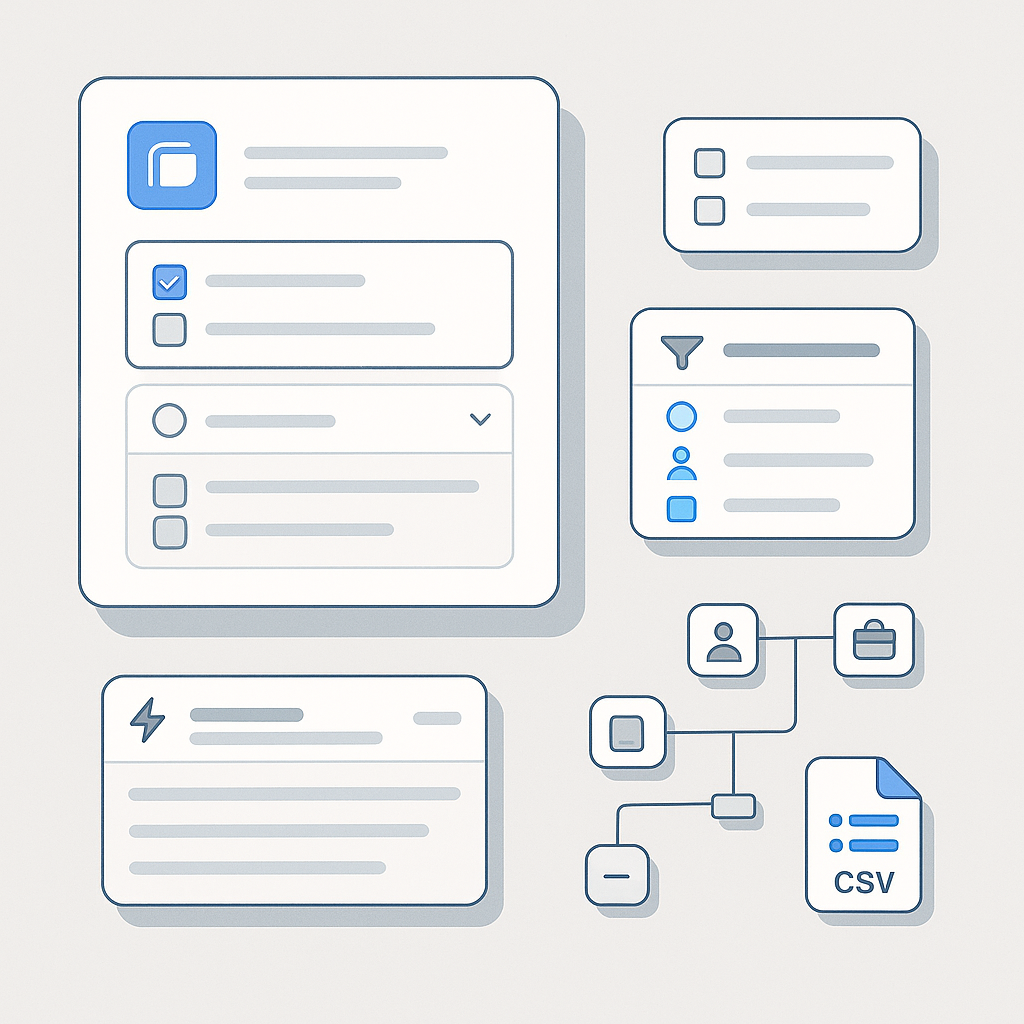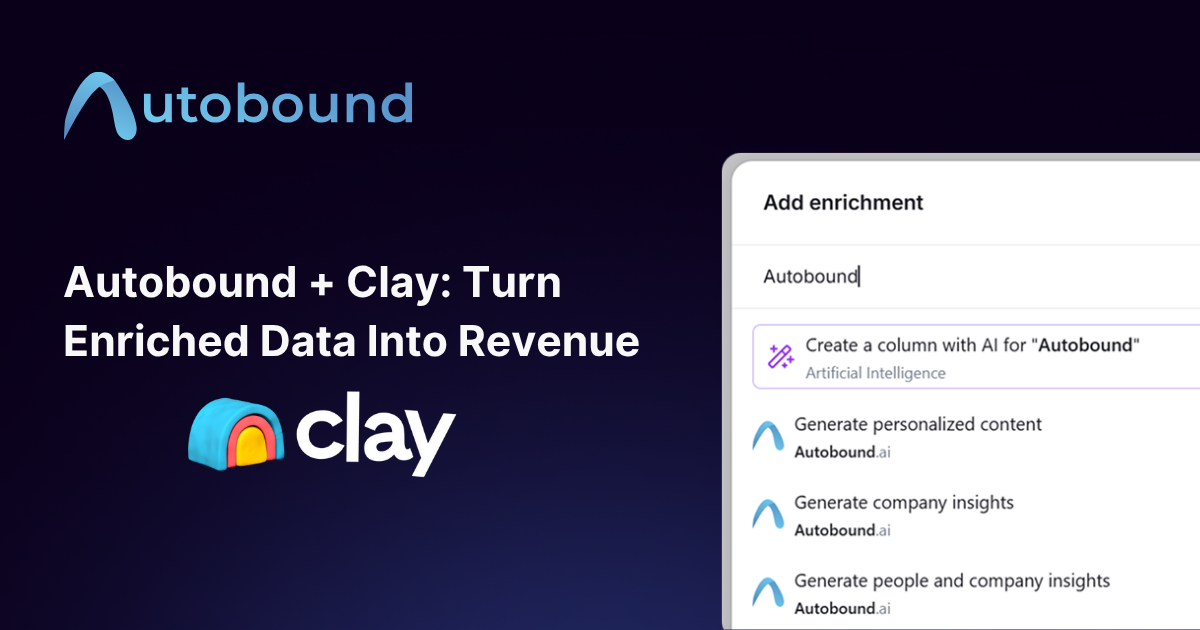I. Introduction: The Road Less Traveled - Why Selling to Transportation Companies is Unique
when transportation professionals search for solutions like yours, they find you.
Industry Events: Don't Underestimate Face-to-Face
While digital marketing is essential, don't underestimate the power of face-to-face interactions in the transportation industry.
Actionable Insight: Make it a priority to attend industry trade shows, conferences, and networking events. These events provide invaluable opportunities to connect with potential clients, build relationships, and generate leads.
Having a strong presence at these events allows you to showcase your solutions, answer questions directly, and gather valuable feedback from industry professionals. It's also an excellent opportunity to network with potential partners and stay abreast of the latest industry trends.
V. Navigating the Future of Transportation Sales
The transportation industry is in a constant state of flux, driven by technological advancements, evolving customer expectations, and a growing need for sustainability. To thrive in this dynamic landscape, B2B sales and marketing professionals must embrace ongoing learning and adaptation.
The Evolving Transportation Landscape
As we've discussed, the transportation industry is rapidly evolving. Automation, artificial intelligence (AI), and data analytics are no longer futuristic concepts; they're becoming integral parts of the transportation ecosystem.
Staying Ahead of the Curve
Actionable Insight: To stay competitive, commit to continuous learning. Stay informed about emerging technologies, industry trends, and changing regulations. Subscribe to industry publications, attend webinars, and follow thought leaders to stay ahead of the curve.
The more you know about the challenges and opportunities facing the transportation industry, the better equipped you'll be to adapt your sales and marketing strategies and provide solutions that resonate.
Embracing AI and Automation
As the transportation industry increasingly embraces AI and automation, so too should B2B sellers.
Actionable Insight: Leverage AI-powered sales tools to enhance your outreach, automate repetitive tasks, and gain a competitive edge. These tools can help you personalize messaging at scale, identify high-potential prospects, and optimize your sales processes for greater efficiency.
By embracing the same technologies that are transforming the transportation industry, you demonstrate your commitment to innovation and position yourself as a forward-thinking partner.
VI. Conclusion: Your Journey to Transportation Sales Success Starts Now
Selling to transportation companies presents unique challenges, but with the right strategies and insights, it also offers significant rewards. By understanding the industry's complexities, embracing its evolving dynamics, and tailoring your approach to resonate with its unique characteristics, you can achieve sustainable success in this lucrative market.
Recap of Key Takeaways
Here's a quick recap of the key takeaways to guide your transportation sales journey:
- Understand the Landscape: Familiarize yourself with the various segments of the transportation industry, their specific challenges, and the trends shaping their future.
- Embrace Persona-Based Selling: Develop detailed buyer personas for each key decision-maker within transportation companies to tailor your messaging and value propositions effectively.
- Focus on ROI: Clearly articulate the tangible return on investment (ROI) of your solution, using data, case studies, and testimonials to support your claims.
- Build Relationships: Invest time in building strong relationships and trust with prospects, as the transportation industry values personal connections.
- Leverage Technology: Embrace technology for sales enablement, utilizing CRM, sales engagement tools, and AI-powered sales intelligence platforms to streamline your processes.
- Be Patient and Persistent: Prepare for longer sales cycles and nurture leads over time with valuable content, regular touchpoints, and a deep understanding of their buying journey.
- Embrace ABM: Utilize Account-Based Marketing (ABM) to target high-value accounts with personalized campaigns that resonate with their specific needs and goals.
- Deliver Value Through Content: Create high-quality content that addresses the pain points of transportation professionals and positions your brand as a thought leader.
- Embrace Digital Marketing: Establish a strong online presence through SEO, paid advertising, social media marketing, and email marketing to reach your target audience effectively.
- Attend Industry Events: Make the most of trade shows, conferences, and networking events to connect with prospects face-to-face, build relationships, and generate leads.
- Stay Ahead of the Curve: Embrace ongoing learning and adaptation to stay informed about emerging technologies, industry trends, and changing regulations.
Call to Action
Ready to accelerate your sales efforts in the transportation industry? Contact us today for a free consultation to discuss how our solutions can help you optimize your sales processes, improve efficiency, and drive revenue growth. Let's navigate the road to success together!
About Autobound
Autobound's leading AI-powered platform delivers 350+ unique insights for go-to-market teams from financial filings, social media activity, 35 news events, competitor trends, job changes and more. Trusted by 7,000+ companies including TechTarget and validated by 220+ 5-star G2 reviews, we're unlocking hyper-personalization at scale, with native integrations for Salesloft, Outreach, and more. Leverage our developer-friendly API, try our Chrome extension, try our platform free, or contact our team to eliminate guesswork and drive measurable growth →
Built with love in San Francisco, CA
Imagine this: you're trying to make your way through a bustling shipping yard at peak hour. Containers are stacked like skyscrapers, trucks weave through the maze with an almost balletic precision, and the air thrums with the constant symphony of global commerce. It's a whirlwind of activity, a logistical ballet of epic proportions, and frankly, a little overwhelming, right? Well, selling to transportation companies can feel a bit like navigating that shipping yard – a thrilling, complex world with its own set of rules, rhythms, and routes to success.
Now, we all know that transportation is the lifeblood of, well, pretty much everything. From the coffee you're sipping on (hopefully delivered on time!) to the device you're reading this on, transportation is the invisible force that keeps the world moving. But here's the thing: selling to the very industry that keeps things running smoothly requires a special kind of understanding, a nuanced approach that goes beyond the typical sales playbook.
You see, the transportation industry isn't just some niche market; it's a colossal economic force. We're talking about a multi-trillion dollar industry that forms the backbone of global trade, a complex ecosystem of trucking titans, logistics mavericks, last-mile innovators, and everyone in between. And this industry, my friends, is evolving faster than ever before, driven by technological advancements, a relentless pursuit of efficiency, and a growing awareness of its environmental impact.
That's where you come in, intrepid B2B sales and marketing professionals. The transportation industry is ripe with opportunity for those who can speak its language, understand its challenges, and offer solutions that truly move the needle. But be warned, this isn't a game for the faint of heart. Selling to transportation companies comes with its own unique set of challenges – sales cycles that could rival a transatlantic voyage, buying committees that resemble a small army, and a constant need to prove ROI in an industry where every penny counts.
But don't worry, we've got your back. This pillar page is your comprehensive guide to navigating the exciting, sometimes daunting, world of selling to transportation companies. We'll equip you with the insights, strategies, and practical tips you need to not only survive but thrive in this dynamic market. Think of it as your GPS for navigating the transportation sales superhighway, helping you avoid the potholes, accelerate past the competition, and cruise smoothly towards revenue growth.
II. Understanding the Transportation Landscape: Buckle Up for a Data-Driven Ride
Before you can even think about selling to transportation companies, you need to understand the terrain. This isn't just about knowing the difference between a bill of lading and a proof of delivery (though that helps!). It's about grasping the sheer scale and scope of the industry, the forces shaping its future, and the challenges that keep transportation executives up at night.
Industry Overview
Let's start with the numbers because in the transportation world, numbers speak volumes. The global logistics market alone – just one piece of the transportation puzzle – is projected to reach a staggering $13 trillion by 2027, according to Statista. That's trillion, with a "T." This tells us two things: one, the transportation industry is an economic powerhouse, and two, there's a whole lot of potential for B2B businesses like yours.
But it's not just about size. The transportation industry is incredibly diverse, encompassing everything from trucking and logistics to maritime shipping, rail freight, and even the burgeoning world of urban air mobility (think drones delivering your packages!). Each segment has its own unique characteristics, challenges, and opportunities, so it's crucial to understand where your solutions fit into this complex ecosystem.
Transportation Industry Trends
The transportation industry is like a shark – it has to keep moving forward to survive. And in today's rapidly evolving business environment, that means embracing innovation, adapting to new technologies, and constantly seeking ways to optimize efficiency and sustainability. Here are a few key trends that are shaping the future of transportation and creating exciting opportunities for savvy B2B sellers:
Electric Vehicles (EVs) & Sustainability
The transportation industry is a major contributor to global carbon emissions, and the pressure is on to clean up its act. This has led to a surge in the adoption of electric vehicles (EVs) and alternative fuel vehicles, particularly in the trucking sector, which is responsible for a significant chunk of transportation-related emissions.
Actionable Insight: This shift towards sustainability presents a golden opportunity for B2B companies offering solutions that support EV adoption and eco-friendly transportation practices. If you're selling fleet management software, for example, highlight its ability to optimize EV charging schedules, track battery life, and minimize downtime. If your product focuses on route optimization, emphasize its potential to reduce fuel consumption and emissions. By positioning your solutions as enablers of a greener, more sustainable transportation industry, you'll be speaking the language of forward-thinking transportation executives.
Digital Transformation and Technology Adoption
The transportation industry is no stranger to technology, but in recent years, it's been undergoing a full-blown digital transformation. From transportation management systems (TMS) and telematics to real-time tracking solutions and predictive analytics, transportation companies are investing heavily in digital tools to gain a competitive edge.
Actionable Insight: This digital revolution is music to the ears of B2B companies offering software, platforms, and services that cater to the industry's growing appetite for automation, data-driven decision-making, and enhanced visibility. If you're selling a TMS, for instance, emphasize its integration capabilities with other essential logistics software, its ability to provide real-time visibility into supply chain operations, and its use of predictive analytics for route optimization and delivery forecasting. By highlighting the technological advantages of your offerings, you'll be aligning yourself with the industry's push for greater efficiency and agility.
Supply Chain Disruptions and Resilience
Remember the good old days when supply chains ran like clockwork? Yeah, neither do we. Recent global events, from the pandemic to geopolitical tensions and everything in between, have exposed the fragility of global supply chains and highlighted the need for greater resilience and adaptability.
Actionable Insight: This new era of supply chain uncertainty presents a unique opportunity for B2B companies offering solutions that help transportation companies navigate disruptions, mitigate risks, and build more robust and agile supply chains. If you're selling a supply chain management platform, for example, highlight its real-time tracking capabilities, predictive analytics for anticipating potential disruptions, and features that enable agile route adjustments to ensure on-time delivery. By positioning your solutions as essential tools for navigating the choppy waters of global trade, you'll be offering transportation companies the peace of mind they desperately crave.
III. B2B Sales Strategies for Transportation Companies
Now that you've got a handle on the transportation landscape and the forces shaping its future, let's talk strategy. Selling to transportation companies requires a nuanced approach, one that takes into account the industry's unique characteristics, decision-making processes, and deep-rooted emphasis on relationships. Here are a few proven strategies to help you navigate the transportation sales cycle and steer your deals towards a successful close:
Persona-Based Selling is Key
In the B2B world, especially when dealing with complex industries like transportation, it's easy to fall into the trap of thinking about companies as monolithic entities. But the truth is, companies are made up of people, and those people have different roles, priorities, and pain points.
Actionable Insight: That's where persona-based selling comes in. This approach involves developing detailed profiles of your ideal customers within a transportation company, outlining their specific responsibilities, challenges, goals, and the criteria they use to evaluate solutions. This could include dispatchers, fleet managers, safety officers, logistics coordinators, CFOs, CEOs – anyone involved in the decision-making process.
By understanding the motivations and pain points of each persona, you can tailor your messaging and value propositions to resonate with their specific needs. For example, when engaging with a fleet manager, you might emphasize the fuel efficiency features of your product and its ability to improve driver safety. However, when communicating with a CFO, your focus should shift to cost savings, ROI, and compliance benefits. By aligning your pitch with the specific needs and priorities of each persona, you increase your chances of gaining buy-in from the entire buying committee.
Focus on ROI and Value Demonstration
Transportation companies, like any business, are laser-focused on their bottom line. But in an industry known for its tight margins and constant pressure to optimize efficiency, demonstrating a clear return on investment (ROI) isn't just important – it's essential.
Actionable Insight: When selling to transportation companies, don't just talk about features and benefits – translate those into quantifiable outcomes. Use case studies, testimonials from satisfied customers, and data-driven examples to showcase how your product or service has helped similar companies achieve measurable results.
For instance, if your solution helps optimize routes and reduce fuel consumption, quantify those savings in terms of dollars and percentages. If your product streamlines logistics and reduces delivery times, highlight the impact on customer satisfaction and repeat business. By presenting a compelling ROI narrative, you provide transportation companies with the financial justification they need to invest in your solution.
Build Strong Relationships and Trust
The transportation industry, despite its size and technological advancements, remains a relationship-driven sector. Building trust and rapport with prospects is crucial for long-term success.
Actionable Insight: Invest time in nurturing relationships with potential clients. Attend industry events and trade shows to network with key players, engage with them on social media platforms like LinkedIn and Twitter, and personalize your outreach to demonstrate a genuine understanding of their business and challenges.
Remember, people buy from people they like and trust. By establishing yourself as a reliable partner who understands their industry and genuinely cares about their success, you're more likely to earn their business and build lasting relationships.
Embrace Technology for Sales Enablement
Just as transportation companies are embracing technology to optimize their operations, B2B sales teams should leverage technology to streamline their sales processes and improve efficiency.
Actionable Insight: Implement a robust Customer Relationship Management (CRM) system to manage leads, track interactions, and gain insights into prospect behavior. Utilize sales engagement tools to automate outreach, schedule meetings, and ensure consistent follow-up.
Moreover, consider incorporating AI-powered sales intelligence platforms into your tech stack. These platforms can automate research tasks, provide real-time insights into prospect behavior, and even help personalize outreach at scale. This aligns perfectly with the transportation industry's own digital transformation, demonstrating that you're at the forefront of innovation.
Long Sales Cycles Require Patience and Persistence
In the transportation industry, be prepared for sales cycles that are longer than the average B2B sale. Decision-making processes can be complex, involving multiple stakeholders and requiring thorough due diligence.
Actionable Insight: Don't get discouraged by lengthy sales cycles. Instead, focus on nurturing leads over time with valuable content, regular touchpoints, and a deep understanding of their buying journey. Provide them with the information they need to make informed decisions, address their concerns, and build a strong case for your solution.
Remember, patience and persistence are key. By staying engaged, providing value, and building trust throughout the extended sales process, you increase your chances of ultimately securing the deal.
IV. Tailored Marketing Strategies for the Transportation Sector
While a strong sales strategy is crucial for closing deals, effective marketing is essential for generating qualified leads and building brand awareness within the transportation industry. Here are some targeted marketing strategies to reach your ideal customers:
Account-Based Marketing (ABM) for High-Value Accounts
Transportation companies often involve landing large, complex accounts with significant revenue potential. Account-Based Marketing (ABM) is a strategic approach that aligns perfectly with this dynamic.
Actionable Insight: Identify your ideal customer profile (ICP) within the transportation sector. This involves defining the specific characteristics of companies that are most likely to benefit from your solutions and have the highest lifetime value. Once you've identified your ICP, target key decision-makers within those companies with personalized campaigns tailored to their unique challenges and goals.
ABM is about building relationships with high-value accounts, understanding their specific needs, and providing them with tailored content and messaging that resonates. This approach aligns with the relationship-driven nature of the transportation industry, fostering trust and credibility.
Content Marketing That Delivers Value
Transportation professionals are hungry for information and insights that can help them navigate industry challenges, improve efficiency, and stay ahead of the curve. Content marketing is a powerful tool for attracting and engaging these individuals.
Actionable Insight: Create high-quality content that provides genuine value to your target audience. This could include blog posts, case studies, white papers, webinars, ebooks, and industry reports. Focus on topics that address their pain points, provide actionable advice, and showcase your expertise.
For example, you could create content around topics like "How AI is Optimizing Logistics and Last-Mile Delivery," "Strategies for Building a More Resilient Supply Chain," or "The Future of Electric Vehicles in Transportation." By providing valuable content, you position your brand as a thought leader and trusted resource within the industry.
Digital Marketing Channels That Reach Your Target Audience
Transportation buyers are increasingly active online, researching solutions, connecting with peers, and seeking information. To reach them effectively, you need to establish a strong online presence.
Actionable Insight: Leverage a multi-faceted digital marketing strategy that includes:
- Search Engine Optimization (SEO): Optimize your website and content to rank highly in search engine results pages (SERPs) for relevant industry keywords. This ensures that




